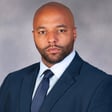
Human Resources - Employee & Labor Relations feat. Kendra Lee, Esq.
Today, we’re discussing Human Resources with a specialty in Employee & Labor Relations. Human Resource Managers focus on the efficiency of the relationship between employee and employer, so they often wear many hats that include Legal, Business & Project Management. Employee Relations Specialists focus on preventing problems between employees and management. They create policies that are fair and consistent for everyone in the workplace. Labor Relations often deal with Union negotiations. They influence performance management, disciplinary action, settlement agreements and an extensive list of other complex issues.
Today’s guest is Kendra Lee, Esquire, an HR Consultant focused on Employee & Labor Relations with the US Dept. of Veterans Affairs. Kendra has served the VA for over 9 years leveraging her MBA & JD to establish a motivating and healthy work environment that will ultimately serve Veterans. She loves that she gets to use her expertise & pragmatism to solve dilemmas and is known around her parts as a SME or Subject Matter Expert.
https://www.linkedin.com/in/leekl2003/












